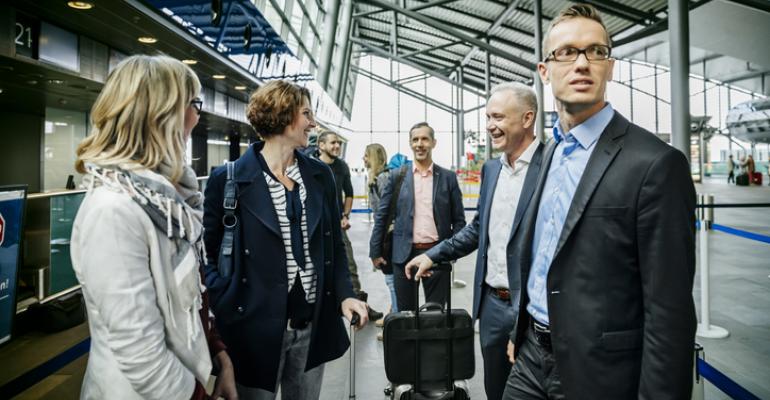As much as corporate and association conference planners are dealing with high prices and service challenges as they coordinate their latest events, an early-September report from hotel-industry analyst CoStar on the state of the business-travel market reveals two pieces of good news for planners.
First, the report notes that “the timing of the business-travel recovery is perfect given that the school year has begun and the strong leisure demand of the past year is starting to wane,” which will help planners seeking space and reasonable rates. And second, 63 percent of 400 business travelers surveyed by CoStar said that they were as likely or more likely to travel than before the Covid pandemic to industry conferences/exhibitions, while 61 percent said they would be as likely or more likely to travel for corporate training and teambuilding events. The analysis also finds that “the increase in remote workers could be influencing this need for teams to gather, and might become a more significant business-travel segment in the future.”
 Looking into 2023, the CoStar report asks these questions about the meetings market and the wider business-travel segment: Will the pent-up demand for in-person events continue? Will remote workers unleash a new demand for training and teambuilding events as well as outside professional education? And as large corporations stabilize their corporate travel policies, will road warriors return in full force?
Looking into 2023, the CoStar report asks these questions about the meetings market and the wider business-travel segment: Will the pent-up demand for in-person events continue? Will remote workers unleash a new demand for training and teambuilding events as well as outside professional education? And as large corporations stabilize their corporate travel policies, will road warriors return in full force?
According to the report, the answer to that last question depends on the future behavior of the 40 percent of survey respondents who said that they were unlikely to take an overnight business trip in the next 12 months. “Because of the efficiencies and cost savings experienced by conducting business virtually during the pandemic, there is some business travel that will never return.” Such a scenario would leave more guest rooms available for corporate and association events.
As for first two questions, the as-yet-unknown answers will “present the hotel industry with both challenges and opportunities,” says the report. “The pandemic has disrupted traditional behaviors; this disruption provides hotels with opportunity to engage with travelers in perhaps previously unseen ways.”





